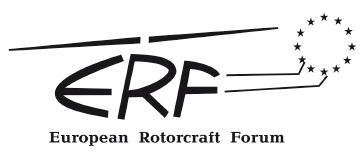Padfield’s long and distinguished career as a research scientist and professor has been instrumental in establishing and expanding the analytic boundaries in many rotorcraft areas, including flight handling qualities of helicopters and tilt rotor aircraft, simulator fidelity, helicopter/ship dynamic interface modeling, and analysis techniques to help define and explain the complexities of both helicopter and human pilot behavior measured in flight test. In his innovative approach to flight control, Padfield has drawn on the understandings of visual perception in the natural world to explain how pilots guide and stabilize aircraft.
Padfield received his Bachelor of Science in aeronautical engineering at the University of London (Queen Mary College) in 1969. Padfield’s eventual research focus was defined very early, with his prize winning final year project, “The Strongly Controlled Aircraft,” published in the Aeronautical Quarterly in 1971. Padfield completed his PhD in late 1976 and joined the Royal Aircraft Establishment (RAE) Bedford in the Helicopter Division. During his 23-year career at the RAE (later the Defence Evaluation and Research Agency, DERA), he specialized in helicopter flight research, engaged in flight test, modeling and flight simulation, handling qualities and flight control developments.
Padfield took up the James Bibby Chair in Aerospace Engineering at The University of Liverpool in August 1999, creating the Flight Science and Technology Research Group. He was Aerospace Programme Director until 2006, more than doubling the undergraduate student intake in this period. In August 2004, he was appointed Head of the Department of Engineering, including the disciplines of Aerospace, Mechanical, Materials Science, Manufacturing, Design and Civil Engineering, where he exercised skills in balance and compromise. Padfield’s research interests include flight handling qualities and control, modeling and simulation and the flight dynamics of fixed and rotary wing aircraft. At Liverpool, he has taught Aircraft Performance and Rotorcraft Flight and introduced a new problem-based-learning module, Flight Handling Qualities, into the final year of the Aerospace Masters program at Liverpool.
Below you will find an overview of the previous Gareth Padfield Best Young Author Awards;
| ERF | Year / Place | Winner | Paper Title |
|---|---|---|---|
| 49 | 2023 Bückeburg | Tao Zhang, University of Leicester, UK | High fidelity aerodynamic and acoustic evaluations of a heavy-lift eVTOL in hover |
| 48 | 2022 Winterthur | Kagan Atci, DLR, Germany | Impact of Differential Torsional Rotor Cant on the Flight Characteristics of a Passenger-Grade Quadrotor |
| 47 | 2021 Conference call (virtually due to COVID-19 pandemic) | Sven O. Schmidt, DLR, Germany | Evaluation of a Real-Time Simulation Environment for Helicopter Air-to-Air Refueling Investigations |
| 45 | 2019 Warsaw | Wajih A Memon, Mark D White, Ieuan Owen, The University of Liverpool, United Kingdom | Visual-Vestibular Motion Cueing Assessment in Maritime Rotorcraft Flight Simulators |
| 44 | 2018 Delft | Jakob Thiemeier, Institut für Aerodynamik und Gasdynamik, Universität Stuttgart, Germany | Aerodynamic and Flight Mechanics Analysis of Airbus Helicopter’s Compound Helicopter RACER in Hover under Crosswind Conditions |
| 43 | 2017 Milan | Roland Feil, Institute of Helicopter Technology TUMunich, Germany | Vibratory load predictions of a high-advance ratio coaxial rotor system validated by wind tunnel tests |
| 42 | 2016 Lille | Morgane Marino, Airbus Helicopters, France | A Large Eddy Simulation of the Fenestron® at high blade pitch angle |
| 41 | 2015 Munich | Ulrich Kowarsch, Universtiy of Stuttgart | Aeroacoustic simulation of a complete H145 helicopter in descent flight |
| 40 | 2014 Southampton | Jean-Charles Antonioli, Onera | Toward the development of methodology for designing helicopter flight control laws by integrating handling qualities requirements |
| 39 | 2013 Moscow | Joël Mouterde, Eurocopter SAS | New methodologies to improve health and usage monitoring system (hums) performance using anomaly detection applied on helicopter vibration data |
| 38 | 2012 Amsterdam | Tim Waanders, Eurocopter Deutschland | Helicopter miniaturized and low cost obstacle warning system |

